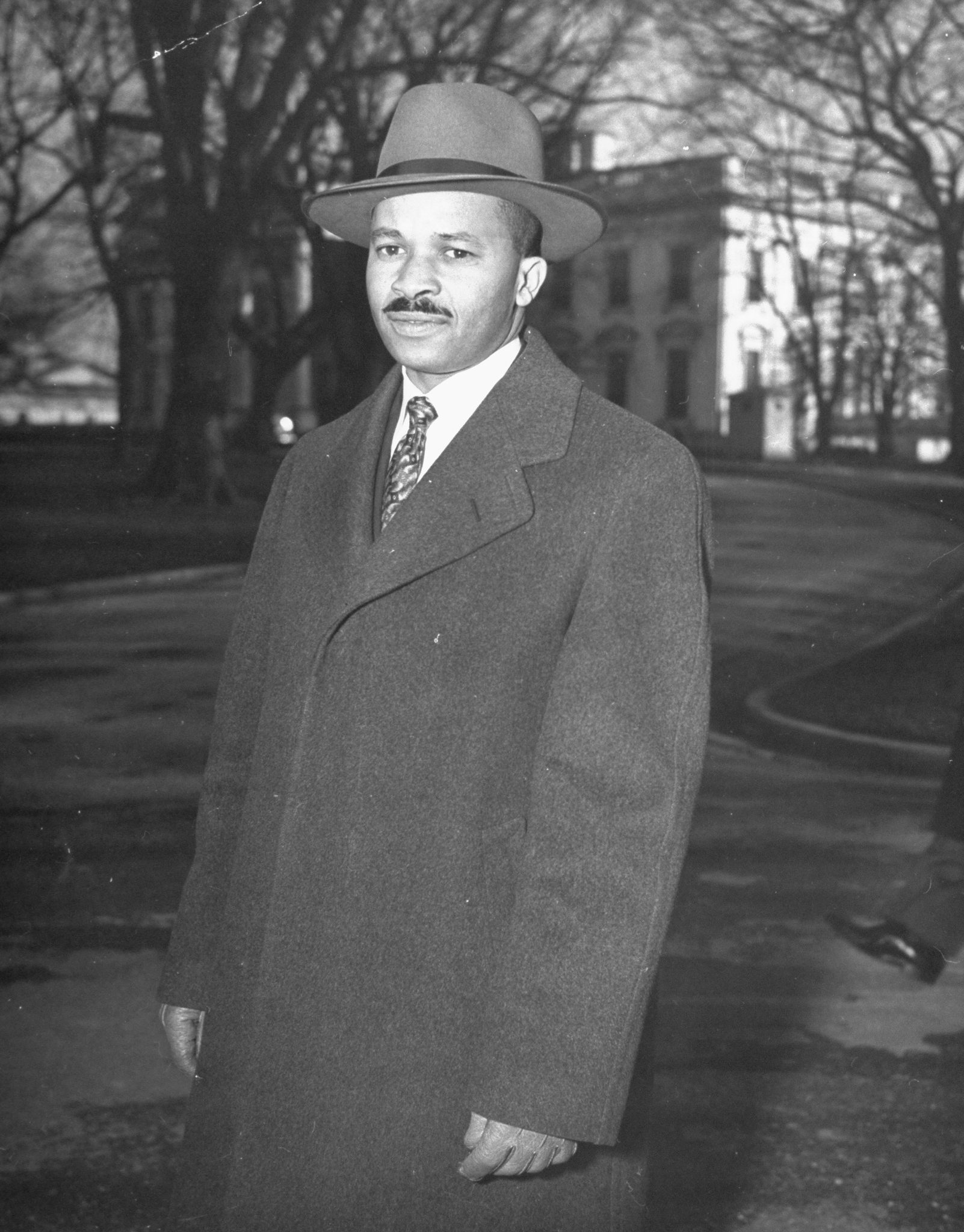
Comedy, celebrity schmoozing and glamour have become synonymous with the White House Correspondents’ Association’s annual dinner, slated for Saturday. But attendees of this year’s dinner will also get a glimpse of yesteryear’s White House press corps, when racism and sexism helped journalists maintain an unequal status quo.
The WHCA, now in its 100th year, will announce Saturday the creation of a scholarship to honor Harry McAlpin, the first black journalist to cover a White House press conference. McAlpin’s son Sherman will be in attendance to mark the occasion. George E. Condon, a former WHCA president, wrote in a National Journal op-ed Friday that it’s an opportunity for the Association to apologize for a past injustice. McAlpin, a reporter for the Atlanta Daily World, was denied entry into the WHCA, which at the time represented an all-white, all-male corps.
“Harry, you have been accredited as a White House correspondent by President Roosevelt and there is nothing we can do about that,” former WHCA President Paul Wooten reportedly told him, before offering to share his notes and ask questions for McAplin rather than have him attend the conference.
Wooten continued, according to an unpublished memoir Condon references: “There is always a large crowd at the conferences. They gang up to the corridor leading to the president’s office, and when the signal is given to enter, there is a grand rush. It’s possible that you might step on someone’s foot in the rush … and there would be a riot right in the White House.”
President Franklin D. Roosevelt’s secretary Stephen Early stepped in to admit McAlpin.
“Reporter McAlpin went into the conference without having been accepted by the Congressional Galleries’ standing committee or by the White House Correspondents’ Association, which ordinarily pass upon an applicant before credentials are issued,” reads a Feb. 21, 1944 TIME article. “At week’s end the bypassed Galleries’ committee and the Correspondents’ Association has said nothing, done nothing.”
The encounter with the WHCA wasn’t Condon’s first experience with discrimination. His son Sherman told McClatchy his father wanted to attend the University of Missouri to study journalism but was barred from doing so and attended the University of Wisconsin instead. And it also wasn’t his first experience with discrimination as a correspondent. As a White House reporter, McAlpin covered the 1944 Democratic National Convention, another first for a black reporter, and the death of Roosevelt in 1945. In covering the White House, he questioned Presidents Roosevelt and Harry Truman on issues facing the black community, including employment. He stopped covering the White House in 1945 and later became a chapter president of the NAACP in Louisville. But McAlpin, who died in 1985, was never admitted to the White House Correspondents’ Association, and he never attended the group’s annual dinner. The first black reporter to be admitted to the association was Louis Lautier in 1951. Lautier attending the dinner in 1953.
The White House press corps remains largely white. The Washington Post reported last year that only seven of the 53 regular correspondents at the time were either African-American or Asian-American.
“Harry McAlpin was a remarkable man. We honor his role as the first black reporter to cover a presidential press conference. And we acknowledge that he did that in spite of opposition from the White House Correspondents’ Association of the time,” WHCA president and editor Steven Thomma said, according to McClatchy. “Thanks to the work of Harry McAlpin, and men and women in the decades that followed, the White House press corps and the White House Correspondents’ Association is a diverse chorus of faces and voices. The country is better for it.”
More Must-Reads from TIME
- Breaking Down the 2024 Election Calendar
- How Nayib Bukele’s ‘Iron Fist’ Has Transformed El Salvador
- What if Ultra-Processed Foods Aren’t as Bad as You Think?
- How Ukraine Beat Russia in the Battle of the Black Sea
- Long COVID Looks Different in Kids
- How Project 2025 Would Jeopardize Americans’ Health
- What a $129 Frying Pan Says About America’s Eating Habits
- The 32 Most Anticipated Books of Fall 2024
Contact us at letters@time.com